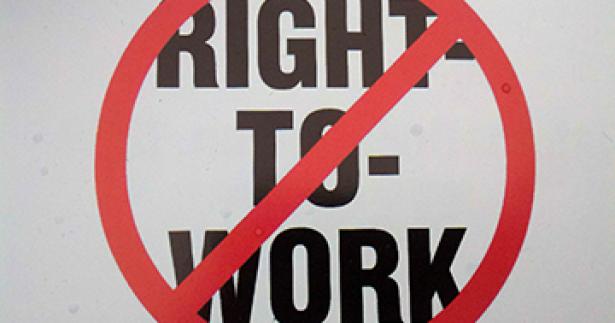labor Maine State House Kills “Right To Work” Legislation Prohibiting Employment Conditional on Payment of Union Dues
The Maine State Legislature voted this week to kill LD 1636, “An Act to Ensure the Right to Work Without Payment of Dues or Fees to a Labor Union.”
The bill, sponsored by Sen. Eric Brakey (R-Androscoggin), would have prohibited both public and private sector employees from being required to either join a union or pay union dues as a condition of their employment.
In testimony before the Joint Standing Committee on Labor and Housing, Sen. Brakey explained that the bill was designed to protect the “unalienable” right to work for “those who are compelled to pay dues or fees to a labor union as a condition of employment, even when they do not believe the decisions of the union bosses reflect their values or their interests.”
Brakey further argued in his testimony that the bill would have led to greater accountability on the part of unions.
“Under forced unionism, people may be able to vote for their union bosses, but so long as those bosses can maintain the support of a majority, why should they care about the objections of a disgruntled minority?” he said. “But when money walks, money talks. Allow workers to vote with their feet and take their money with them – and now union bosses must care what every member (and potential member) thinks.”
John Kalb, Vice President of the National Right to Work Committee, also testified in favor of LD 1636.
“You see, without Right to Work protections, there is little incentive for union officials to offer a good service to their members – because they can compel people to pay them either way. The fact is, good unions don’t need forced dues, and bad unions don’t deserve them,” he said.
Kalb also argued that Right to Work laws are connected with employment growth.
“From 2011 to 2021, the percentage growth in number of people employed was only .7 percent in Maine, and 8.7 percent in all forced-unionism states. Right to Work states, on the other hand, enjoyed employment growth of 15.7 percent – many times more than Maine’s, and nearly double that of forced-unionism states as a whole,” he said.
Some opponents criticized the bill on the grounds that it would have created a freeloader problem for unions in Maine.
Paul Gaspar, testifying on behalf of the Maine Association of Police, objected to the “deliberately vague, although all encompassing” definition of service fee in the bill, arguing that it seeks “to eliminate any ability of service providers to address the costs and resources involved in protecting a contracts authority for non-members who benefit from all benefits and protections provided by the paying members’ collective bargaining agreement.”
Gaspar goes on to explain that Supreme Court case law already prohibits unions from charging nonmember employees a recurring fee.
“This further protects an individual’s standing as an individual who chooses not to join a union or association. It does not, however, eliminate any rights, enumerations or protections under the collective bargaining agreement and exists because of the collective time resources and funding provided through dues paid by active members,” he said. “This creates a fundamental unfairness in deference to dues paying members has characterized the non-member by national unions such as Teamsters, as ‘freeloaders.’ Or getting a free ride.”
Brakey’s testimony before the Committee comments on this concern.
“The truth is, unions voluntarily represent non-members. The Supreme Court has repeatedly ruled that the National Labor Relations Act allows unions to negotiate contracts covering only dues-paying members,” he said.
Others opposing the bill cited statistics showing that the yearly salary of employees in right-to-work states is, on average, lower than in states without right-to-work laws in place.
Matt Schlobohm, Executive Director of the Maine AFL-CIO, testified that “the average full-time worker in states with these kinds of laws earns $1,558 less per year and are less likely to have health insurance or a pension.”
Brakey also responded to this critique in his testimony, acknowledging that wages are in fact slightly lower in Right to Work states, but suggests that this is due, in large part, “because almost every Southern state has a right-to-work law and the South has a lower cost of living. Studies that control for differences in costs of living find workers in states with voluntary dues have no lower – and possibly slightly higher – real wages than workers in states with compulsory dues.”
Also opposing LD 1636 was Phillip Mathieu, testifying on behalf of Sierra Club Maine.
“While proponents of this policy often characterize these laws as promoting freedom of speech and association, improving wages, or spurring economic development, they often conveniently obscure the reality: that the primary outcome of right-to-work laws is a decrease in union membership,” he said.
In the closing of Brakey’s testimony before the Committee on Labor and Housing, he summed up the reasoning behind his support for LD 1636.
“The arguments against right-to-work laws do not withstand scrutiny,” he said. “Right-to-work laws give workers a choice over where their money goes. This freedom forces unions to earn their members’ support. It also attracts businesses and jobs. The law should not force anyone in America to pay union dues as a condition of employment.”
Since, however, LD 1636 was defeated along partisan lines in the Senate, and nearly along partisan lines in the House, Maine will not yet be joining the Right to Work ranks.


Spread the word